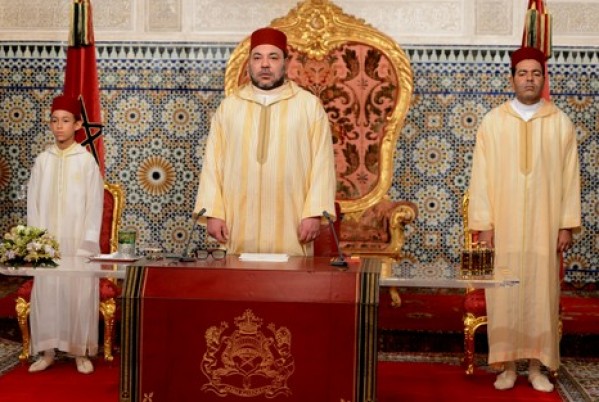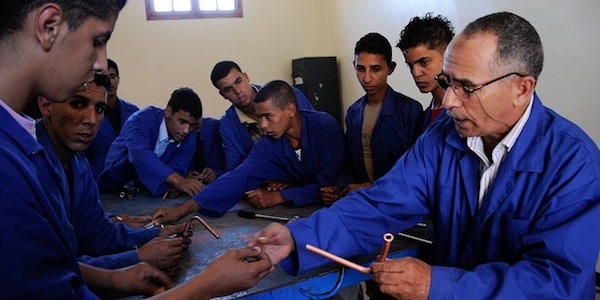A one-day workshop on wealth accounting was held in Morocco on September 15, 2014, in response to the King’s direct request “to make sure intangible capital is used as a key standard in the development of public policies, so that all Moroccans may benefit from their country’s wealth.” Intangible capital includes things such as human and social capital and the quality of institutions.
In his speech on July 30, 2014, on the 15th anniversary of his accession to the throne, King Mohammed VI called on Morocco’s Economic, Social and Environmental Council (CESE) to compile data on Morocco’s total wealth during his reign from 1999 to 2013, in cooperation with the Moroccan Central Bank and relevant national institutions, and in coordination with specialized international institutions.
He said he hoped the study “will come up with an objective assessment of the situation as well as practical recommendations”. He wanted the findings to be widely disseminated and he urged “the government, parliament, and all the institutions concerned and key players in society to study those constructive recommendations and seek to implement them.”
Since the King’s speech, there has been growing interest and momentum in the media, academia and civil society around the concept of “immaterial wealth” and its relevance to the policy debate—often with reference to the World Bank’s The Changing Wealth of Nations report.

The World Bank’s comprehensive wealth accounting can provide an estimate of the total wealth of nations by measuring produced capital (buildings, machinery, and infrastructure); natural capital such as land, forests, fish, minerals and energy; human and social capital; and net foreign assets. Since a country’s wealth underpins national income, changes in wealth are a good indicator of a country’s prospects to maintain or increase income in the long term.
The World Bank began constructing a global database of country-level comprehensive wealth measures in the 1990s. In 2006, the first snapshot of comprehensive wealth for 120 countries was published. More than 150 countries were covered in the next update in 2011 with data from 1995-2005. The next update will be released in 2015.
Morocco’s intangible wealth is on par with the average middle-income country as measured by the World Bank. But Morocco’s development policy has often emphasized investment in infrastructure and produced capital.
“The time has come for Morocco to rebalance its development model and focus less on tangible assets (public investments, industrial plans, import substitution, etc.) and more on intangibles such as the institutions for providing good governance, justice, high-quality social services (especially education), fair competition and economic participation,” said Jean-Pierre Chauffour, the World Bank’s lead economist for Morocco in the Middle East and North African Region, who is leading the dialogue with the government.
The workshop to begin addressing the King’s request to account for intangible capital was hosted by CESE with participation from the central bank (Bank Al Maghrib), the statistics department (HCP), the Ministry of Economy and Finance, the Ministry of Agriculture, and the Royal Institute for Economic Studies (IRES).
The World Bank Country Director in Morocco, Simon Gray, delivered the opening speech (in French) at the conference. Presentations (click on presenters names to access presentations) were made via videoconference from Washington, D.C., by the program manager for the Wealth Accounting and Ecosystem Services (WAVES) global partnership, Glenn-Marie Lange; senior environmental economist Urvashi Narain; and from London by Kirk Hamilton (in French), a professor at the London School of Economics.
The CESE also made a presentation (in French) on intangible wealth in Morocco.
The World Bank has provided the government with tools and software to update their wealth accounts at the country level, and is available to provide follow-up technical support.

